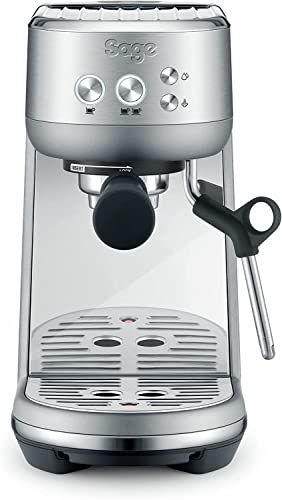What to Look For in a Commercial Espresso Machine
There are a variety of factors to consider when purchasing a commercial espresso machine. The kind of espresso machine that is appropriate for your cafe will depend on the amount of use, the purpose, and barista's skills.
A double boiler system lets you to steam while brewing. This reduces the time required to recover between pulls. Proportional-integral-derivative (PID) temperature control manages on/off cycles for optimal boiler temperatures.
Productivity
A commercial espresso machine is able to handle a higher amount of coffee than a home machine. The idea of allowing a home espresso machine to perform in a professional setting could be the recipe for disaster.
A commercial machine that is of high quality can provide up to 100 coffee cups every hour during peak hours. This is an enormous benefit for busy workplaces, preventing employees from having to sit for hours to get their coffee.
Having a coffee machine at work can help workers to bond with each other. In many cases, teams of workers have a turn getting coffee, and this can encourage collaboration and teamwork in the workplace. Having a dedicated space for coffee can also aid new employees in feeling at comfortably in the workplace, removing any barriers between them and the senior employees.

Commercial espresso machines come in various sizes to accommodate different needs. Certain models are fully automated, while others can pre-program espresso shot sizes so that the operators do not have to guess the right size. This is particularly important for businesses with untrained baristas, since inaccurate shots can greatly impact the flavor and intensity of espresso. It is also best to purchase commercial espresso machines made of ethically sourced products that benefit the communities in which coffee beans are grown. This will ensure that the product is of good quality and minimize the negative impact to the environment.
Safety
Espresso machines are large machines that weigh a lot that can cost as much as a new compact car. The machines are designed to create hundreds of drinks and shots in a single day. Commercial espresso machines pose particular health and safety hazards to staff because of their sheer volume.
Keep in mind that commercial espresso machines tend to use warm water. This can trigger the growth of bacteria. Poorly maintained machines that are not regularly cleaned and descaled may accumulate spent espresso. This can cause it to go rancid, and potentially cause illness when consumed by customers. A commercial espresso machine that has the steam wand that isn't sealed with an effective seal can also allow for the growth of bacterial in the milk frothing system, because it might not be able temperatures that are sufficient to eliminate all bacteria.
Consider the type of beverage you'll be serving and how many cups an hour of your space can hold when selecting a commercial coffee maker. It is important to select machines with automated features that make it easier to serve your customers your favorite coffee beverage. In addition, you should look for a warranty that covers parts and labor so that any technical issues are dealt with quickly and efficiently.
Energy Efficiency
The power requirements for commercial espresso machines are much greater than home models. Professional espresso machines weigh more and feature larger capacity boilers to support several group heads for normal cafe production. These machines also operate at a more elevated temperature and are typically in an indoor location (such as a coffee shop or restaurant) where the electronics could overheat quickly resulting in malfunctioning machines.
The boiler of an espresso machine for commercial use heats up and holds water which has been pressurized using an electric pump. This water is then used for brewing and steaming espresso. The boiler is made up of several copper tubes that are heated by electric elements. When coffee machine espresso is able to detect that the water has reached the desired level, a solenoid valve opens to fill the boiler with fresh water. The heating element is shut off.
There are four distinct types of espresso machines. They are distinguished by their ability to make steam or brew: The TB (brewing-only), TX (twin-boilers), HX (double automated) and DA (double automated). TB and TX machines offer stable brew temperatures, while DA provides rapid steaming from a single boiler. Many cafes are converting to HX machines, since they have been shown to offer the best of both worlds in terms of the temperature of steam and brew.
Maintenance
Commercial espresso machines require regular maintenance, just like cars. They require regular maintenance to function efficiently and smoothly. If you ensure that you keep your machine in good condition, it will give you a better tasting espresso and last longer.
Cleaning your espresso machine is a regular practice, but it's crucial to clean certain parts on a greater scale. There are traces of coffee grounds and other milk products that can cause the machine to fail over time. Regular cleaning helps to prevent this and keeps your espresso machine working at to its maximum.
The majority of espresso machines in commercial use require descaling at least every 3 months. This is a process that requires more steps over regular cleaning, so you'll want check your manual regularly to ensure that you're adhering to the directions. The solution used to clean the water tank dissolves the scale. You'll require a container to finish this task. In some models you may also require an additional container under the coffee spouts. Follow the steps for your specific model.
A water filter replacement is a different maintenance procedure. This is something that can easily be forgotten however it's essential to keep in mind so there isn't a build-up of mineral deposits. You'll also want to check for calcification within the spray head, which can be difficult to eliminate.
